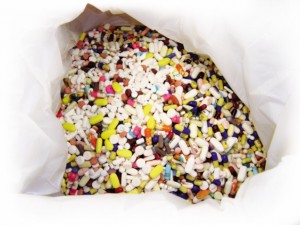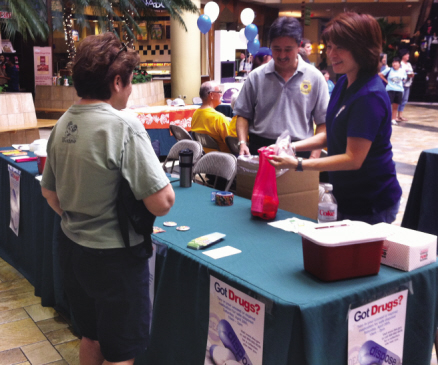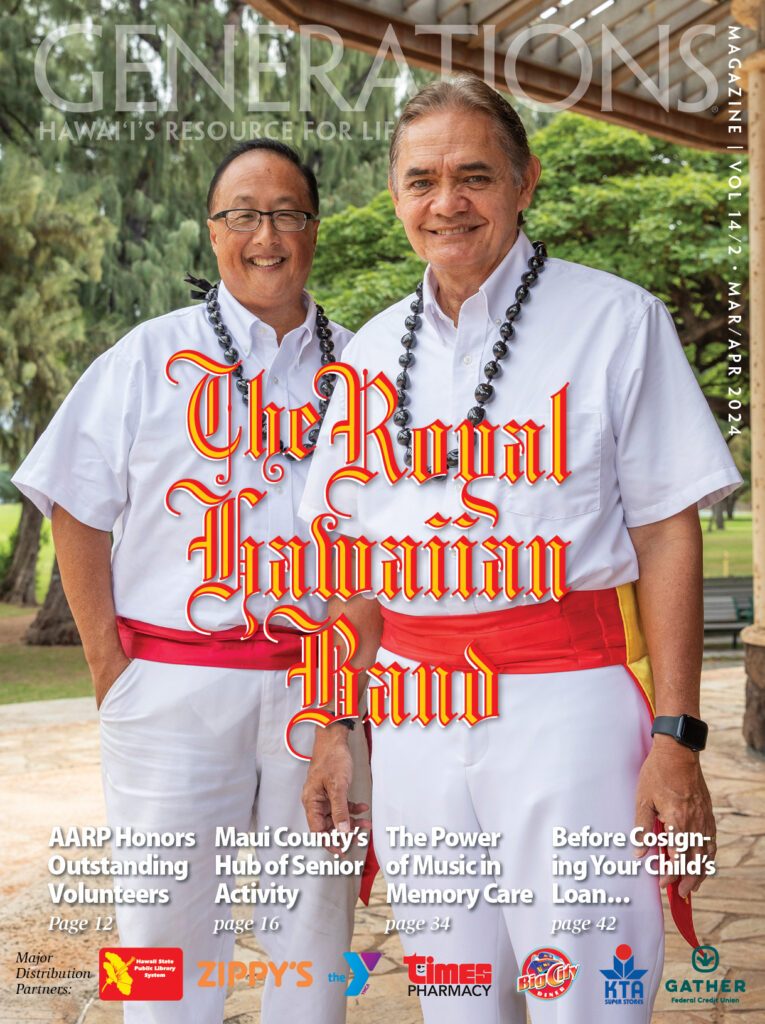
Since 2010, the National Take-Back Initiative has collected more than 12,000 pounds of drugs from Hawai‘i, Guam and Territories.
In 2010, the Hawai‘i Medication Take-Back Program and National Take-Back Initiative were both launched in Hawai‘i. These two separate “take-back” efforts collect, and safely dispose of, prescription medications from the public.
During “take-back” events, the community is encouraged to dispose of unwanted prescription drugs from their homes. Seniors are advised to clean out their medicine cabinets at least once a year. Unused or expired drugs, over-the-counter medicines, vitamins and herbals can lose their strength and become dangerous for people who rely on them for serious health conditions. Also, hanging onto an unused drug increases the chances of taking the wrong one, or it being misused by others in your household.
How Do I Throw Drugs Away?
When drugs are thrown away incorrectly, they can harm the environment, pets and/or children. Don’t flush old drugs down the toilet or pour them down a sink or drain. Instead, drop drugs off at a take-back program.
Dispose of drugs that:
- you have not used in the past 12 months.
- are no longer in their original container or that can no longer be identified.
- have changed color, odor or taste, regardless of the expiration date.
- stick together, are harder or softer than normal, or are cracked or chipped.
- may no longer be effective and, worse, could be a breeding ground for bacteria or fungus, such as in eye drops and ear drops.
Last year in April and October combined, 4,030 pounds of unwanted drugs were collected from Hawai‘i, Guam and Territories during the National Take-Back Initiative coordinated by the Drug Enforcement Administration.
This service is free and anonymous — no questions asked. The collected drugs are incinerated according to federal and state environmental guidelines.
The next National Take-Back Initiative is scheduled for April 26, 10 a.m. to 2 p.m. at various sites on O‘ahu, Kaua‘i, Maui and Hawai‘i. For a list of take-back locations, go to www.dea.gov.
The Hawai‘i Medication Take-Back Program is a partnership with the Narcotics Enforcement Division, Department of Public Safety; Department of the Attorney General; and University of Hawai‘i and Hilo College of Pharmacy. This program takes place about four times a year in various communities. For more information, call the State Narcotics Enforcement Division at 837-8470.
Treat Your Drugs Right
Where do you keep your medicines? Are they in different places — some in the medicine cabinet, some in the kitchen, and some in your car or elsewhere? Your medications only work as well as they are handled. Here are six safe storage tips:
- Take inventory of all your medicines. Make sure that you’re familiar with your drugs and what they do. Talk to your pharmacist if you have any questions
- Identify your drugs. Keep drugs clearly labeled and in their original containers, away from other substances that might be mistaken for them.
- Read instructions carefully and store drugs properly. Follow any instructions from your doctor or pharmacist. Most containers should be stored in a cool, dry place. Your drugs may lose their potency before the expiration date if they are exposed to oxygen, heat, light or humidity. For example, heart medicine should be kept away from light. Many people store their drugs in the bathroom. This is actually one of the worst places to keep medicine. Bathroom cabinets tend to be warm and humid. If you must keep drugs in the bathroom, keep the containers tightly closed.
- Keep drugs out of the reach of children. Keep them secure from teens, reducing the risk of misuse.
- Remove the cotton plug from medicine bottles. The cotton draws moisture into the container.
- Properly dispose of any drugs you no longer need. Do not share drugs with others. (Never treat yourself, or anyone else, with a prescription medicine. Your symptoms might seem similar, but the cause could be different or the medicine may not be the right one this time around.)

Keith Kamita, NED, Chief Special Agent helps collect unwanted drugs at a Hawaii Medication Take-Back Program event.

